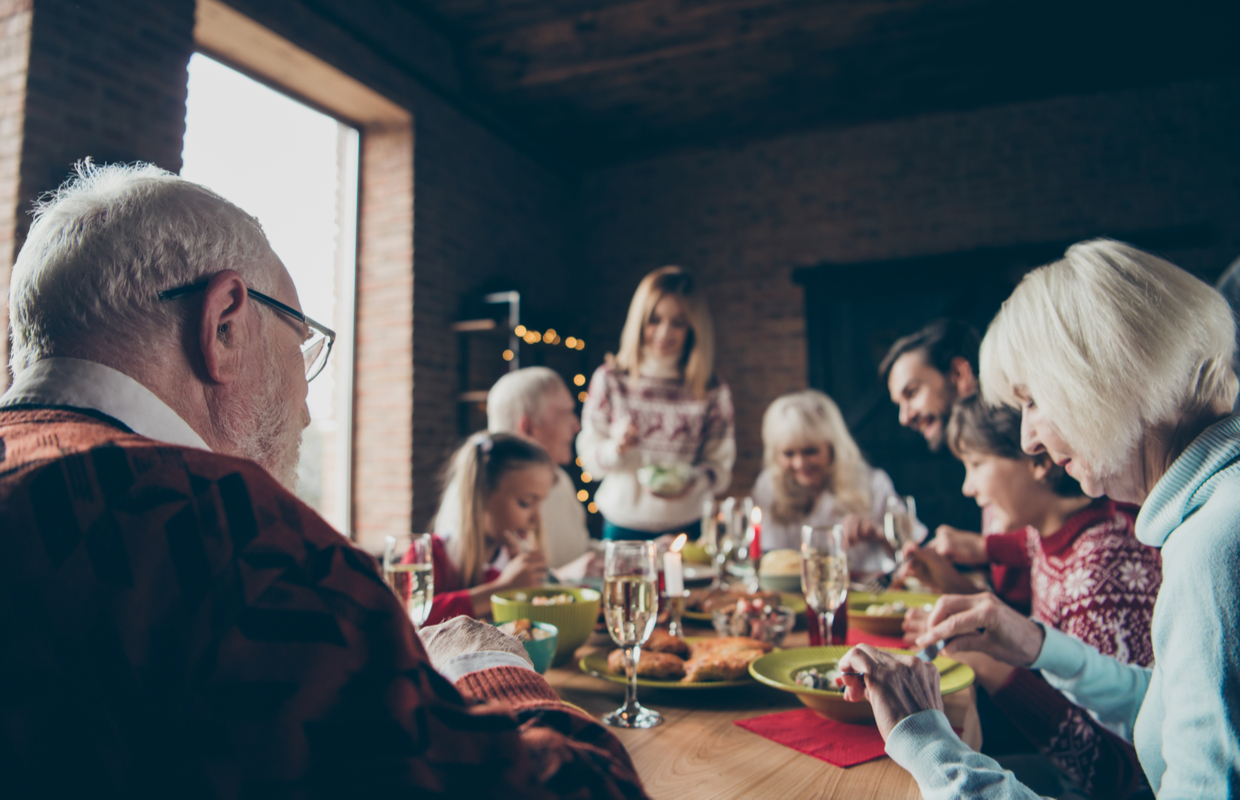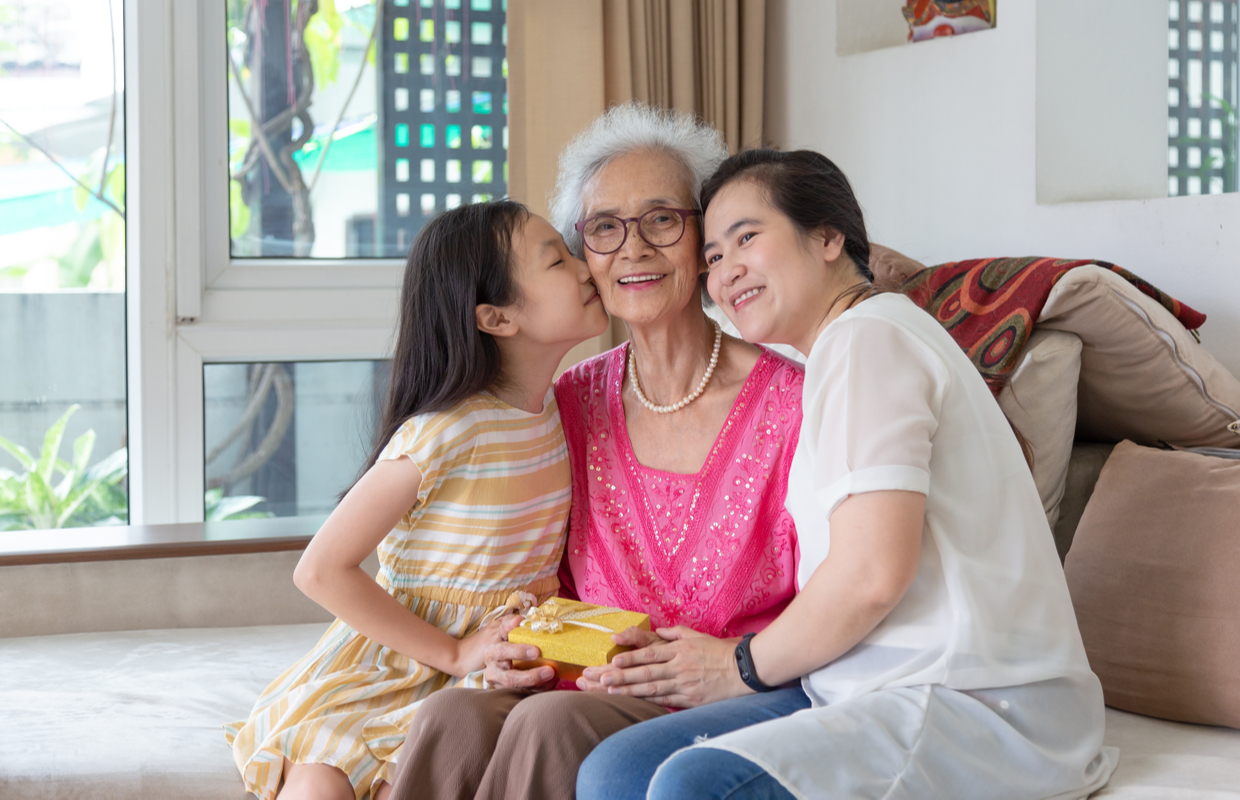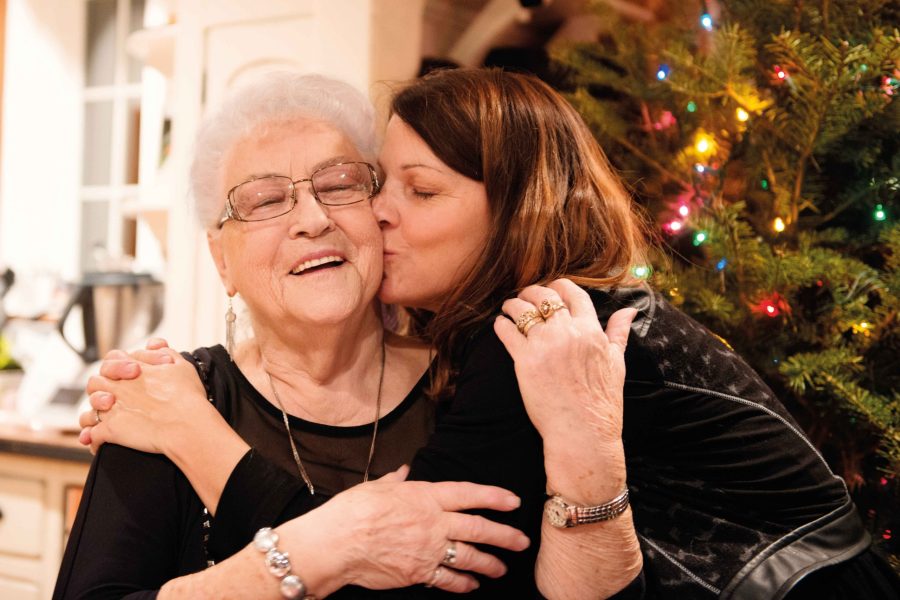If you’re preparing for Christmas with loved ones who have dementia, these tips from Tim Beanland, from the Alzheimer’s Society, will help you support them and create cherished memories for years to come…
1. Don’t have high expectations
Many people have treasured traditions that they associate with Christmas, from Buck’s fizz to carol concerts to a timeless game of charades.
But dementia can be unpredictable, and it is important to try and be flexible and adaptable to how the person with dementia is feeling. Be ready to reassure and support your loved one, as they may become disoriented by the flurry of events around them.
2. Stay connected virtually if you can’t meet in person
Whether because of the pandemic or for other reasons, it might not be possible to be with loved ones at Christmas. It is important to stay connected and there is a lot of technology available to help you do this.
Smartphones, tablets and computers all allow you to stay in touch using text and picture messages, as well as phone and video calls. These can all be a great way to share the day with each other if you aren’t able to be together in person.

Think about how you can adapt certain activities for loved ones with dementia.
3. Make sure you include loved ones with dementia this Christmas
Having dementia doesn’t mean your loved one won’t want to be involved in the festivities. Think about what they enjoy doing and make adaptations.
For instance, if they loved choosing presents for people in the past or going to Christmas services, but are not as mobile as they used to be, you could shop with them online or watch Christmas services over the internet.
When it comes to activities, choose ones you know your relative enjoys and think about how to adapt them if necessary. For example, if they enjoy playing cards but find groups too much,they could play with one person instead. Make sure you ask them what they’d like to do as well.
4. Eat smaller meals to avoid overwhelming those with dementia
The feast that usually comes with Christmas, from the chocolates to the Christmas dinner, will no doubt be enjoyed by many, as people gather around and tuck in. But the eating habits of people with dementia can change.
They may not eat as much as they used to. This can be for a variety of reasons, from being in pain and having difficulties with communication to damage to the brain caused by their dementia. Make sure you don’t overload their plate – small and regular portions often work best.
5. Talk about Christmas memories to connect with loved ones with dementia
Treasured photos, songs or activities can be a great way to engage with people with dementia. Take the time to sit down with your loved ones and reminisce. It can be enjoyable for everyone and is a great way to stimulate conversations.

Reminiscing at Christmas is a great way to engage with those with dementia.
6. Create a quiet space where loved ones can take time out
Christmas can be overwhelming for everyone, especially if there is lots of noise and activity in the house. For some people with dementia, it can all become too much. It is really helpful to have a quiet, safe space or room, where the person can take some time out if they need to.
7. Seek out support when navigating dementia at Christmas
Whoever you are and whatever you are going through, know you’re not alone. You can turn to Alzheimer’s Society for confidential support andadvice this Christmas and all year round.
The society’s Dementia Connect supportline and online community, Talking Point, are there to help at what can often be a difficult and lonely time for people affected by dementia.
HAVE A CHARITABLE CHRISTMAS – You can help Alzheimer’s Society continue to provide vital support to people affected by dementia this Christmas and all year-round by donating at alzheimers.org.uk/get-involved/make-donation.







